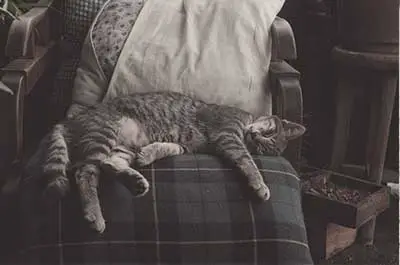If you’re thinking about getting a cat, congratulations! Cats make wonderful pets and can provide plenty of love and companionship. But before you run out to the nearest shelter or pet store, there are a few things you need to consider. Here are ten essential tips for picking the right cat.
Decide on a breed or type.
There are many different breeds and types of cats. If you know what kind of cat you want, such as a Siamese or Persian, look for breeders in your local area. You can also adopt from a shelter, but be aware that the cat may not look exactly like it does in the picture.

You must research the breeds and types of cats before deciding which one is right for you. By doing research, you can learn about their personalities, needs, etc. Many websites provide information on breeds and types of cats available as pets in North America. You can also watch videos on YouTube to help you decide.
Shelters and rescue groups often have a variety of cats available for adoption, so be sure to visit one if you are thinking about adopting a cat. Shelter workers can tell you about the types of cats they have at their facilities and give you information on each animal. The shelter workers will help you find a cat that matches your lifestyle and home.
Decide on an age range.
Cats go through different stages in their lives where they are more or less active, playful, or affectionate. There are certain benefits to getting kittens (for example, they are very playful and easier to train) and adults. Let’s take a look at the different stages of a cat’s life:
Kittens: Kittens are exceptionally playful, active, and require a lot of attention. They also tend to find creative ways to get into trouble, such as eating plants or knocking things over. If you are looking for an indoor-only pet, kittens may not be the best choice since they are so active and curious.
Adults – Cats in adulthood tend to be less active and require less attention than kittens. They also tend to eat less, use the litter box more reliably, and are generally easier to care for.
Seniors – If you are looking for a more relaxed, low-energy pet, consider getting an older cat (age 7 and up). These cats usually sleep more and “only want to play when they’re in the mood”. They also typically develop arthritis as they age.
Decide on your budget.

One of the most important things to consider is how much you are willing to spend. Cats require food, food dishes, litter boxes (if they are not indoor-only), toys (for play and mental enrichment), grooming tools (such as brushes and combs), scratching posts, etc. Before adopting or buying a cat, be sure to take all of these costs into account.
Do you have a big budget? Then you can consider getting a purebred cat from a breeder. If not, look at shelters or rescue groups to find “bargain” cats. An adult cat with no behavioral issues will usually be cheaper than a kitten.
Be careful of pet store prices – they will often ask for extra money for things like de-clawing (removing the claws surgically), shots, and neutering.
Consider your lifestyle.
Do you travel often? If so, don’t get a cat that needs lots of attention. A low-maintenance pet will be easier to care for while you are gone.
Many different factors can influence what kind of cat is best for you. For example, if you live in a small apartment where space is at a premium, then an active cat may not be the best choice since it will need room to run and play.
If you live alone and spend a lot of time away from home, then you may be better off with a cat that needs less attention. If you have allergies, a short-haired cat may be the best choice.
Get ready for some hairballs!
Cats produce a lot of hair, so be prepared for lots of shedding! Also, cats love to scratch things – they keep their nails sharp and muscles strong with this activity.
Some breeds tend to be less messy than others. However, there is no such thing as a “non-shedding” cat, and all cats shed to some degree. If you are looking for a non-shedding cat, certain cat breeds produce less hair (such as the Sphynx and the Cornish Rex).
The best way to reduce pet hair is to establish an indoor-only household. Keep your cats indoors at all times, and you will significantly reduce the amount of hair in your home.
Think about your allergies.
If you have allergies, you will want to get a short-haired cat. They produce less dander (the skin flakes that trigger allergic reactions) and might be the best choice for allergy sufferers. However, if your allergies are very bad, any cat may make them worse.
Start with a short-haired cat if you don’t know if you are allergic to cats. If it doesn’t work out, you will be able to get rid of the hair faster!
Don’t get a purebred!
Purebreds are popular because of their traits. If you want a particular look or personality, then a purebred may be the way to go.

However, if you don’t have specific needs, consider adopting from a shelter or rescue group with a broader selection of cats in need of homes.
Purebreds tend to be more expensive. They also have a much higher risk for genetic defects and illnesses because breeders typically inbreed to keep the “look” of the breed instead of focusing on health and temperament.
Purebreds are also more likely to be abandoned because many people want a cat that looks like the one they had when they were younger but don’t realize how much work it is to care for a purebred! This is why you should never purchase a purebred cat from a pet store.
Do you want a male or female cat?
Male cats tend to be more expensive because they have been neutered. Females are less costly at the outset, but they will go into heat several times a year and attract males from all around your neighborhood. Also, if you plan to get them spayed later in life, it can get pretty pricy.
Female cats are, on average, less aggressive than male cats. They also have a reputation for being cuddlers.
Male cats tend to spray to mark their territory, so it is essential to neuter them as soon as possible if you do not want your house smelling like cat urine!
Neutering a male cat will reduce the volume of its urine, and it also helps with aggression. Spaying a female cat can prevent unwanted litter and keep your home from becoming overrun with kittens!
Do you have any children?
If so, get a kitten because they are much more playful and loving than adult cats. Kittens are as soft as a stuffed animal, and they will not scratch your kids. They also tend to be more active than adult cats, so everyone in the family will have a great time playing with them!
A kitten is probably a better choice if you have other pets at home or small children that may annoy the cat.
Sometimes younger children cannot take care of pets on their own and may forget to feed or clean the litter box. Also, young children are more likely to drop or mishandle pets in their excitement. So, if you are looking for a cat to keep your children company or help them learn about taking care of animals, get a kitten but make sure to teach them how to handle the cat properly.
Kittens are also more likely to become attached to their owners and bond with them better. This is because they are less independent than adult cats, so they need someone nearby who can tend to them regularly.
A young cat is also easier to train. If children are involved, you should consider getting a kitten since they are less likely to scratch the kids by accident!
Are you going to keep the cat indoors or outdoors?

Most cats are fine being kept indoors, so if you have a safe yard with a cat house, then you can keep the cat indoors.
If it is too hot or cold to keep your cat inside all the time, then you should plan on taking them out for supervised visits to get some fresh air.
On average, cats are more sensitive than other pets and they do not adapt well to major changes in their routines.
So, if you want to keep your cat outdoors, then make sure it has a safe place to sleep and stay warm during the winter months!
Conclusion.
With these 10 tips, you now have all the information that is needed to find your perfect cat. Use this list as a guide for what to look for in your next feline companion.
Ready to go get a new kitty right now? Well, we wish you luck! Remember that if you have any questions, you can post them in the comments below and we will try to help you out!
Thank you for reading this article.

Meet Brenda Tillman: your go-to expert in Cognitive Behavioral Therapy! Not only is she a seasoned therapist, but she’s also a passionate mom blogger who never misses a beat. Dive deep into her insightful blogs, backed by her extensive coursework in Parenting Skills, Learning, and Education. Brenda’s heartwarming family – a son, two daughters, and their adorable pets – often take center stage in her writings. From parenting hacks and relationship tips to health & fitness nuggets, Brenda has been enlightening her readers for over half a decade. Stick around, and you’re bound to discover gems from a mom who wears many hats with grace!
Reviewed By: Joanna Perez and Marcella Raskin
Edited By: Lenny Terra
Fact Checked By: Gabrielle J. Smith
Photos Taken or Curated By: Matthew Mansour